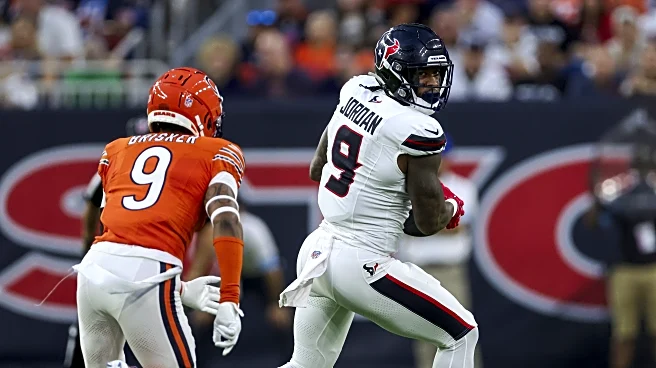What's Happening?
A report from the University of Cambridge reveals significant concerns among novelists about the potential for artificial intelligence (AI) to replace human writers. Dr. Clementine Collett from the Minderoo Centre for Technology & Democracy surveyed 332
authors, finding that 97% were extremely negative about AI writing complete novels. Many authors fear that generative AI, trained on vast amounts of fiction, could undermine the value of writing and compete with human novelists. Additionally, about 40% of authors reported that AI has already impacted their income from other work supporting their novel-writing. The report also highlights issues with copyright, as many authors found their work used to train AI models without permission or compensation.
Why It's Important?
The concerns raised by novelists underscore the broader implications of AI on creative industries. As AI technology advances, it poses a threat to traditional writing professions, potentially leading to job displacement and reduced income for authors. The report calls for a review of copyright laws to protect creatives, emphasizing the need for fair compensation and permission for the use of their work. This situation highlights the tension between technological innovation and the preservation of human creativity, raising questions about the future of the creative arts and the ethical use of AI in content creation.
What's Next?
The report suggests that ongoing dialogue between the creative industries and policymakers is crucial to address these challenges. There may be calls for legislative reforms to ensure that authors are adequately protected and compensated. Additionally, the creative community might push for greater transparency and ethical standards in the development and deployment of AI technologies. As the debate continues, stakeholders will need to balance the benefits of AI innovation with the need to safeguard the livelihoods and contributions of human creators.
















